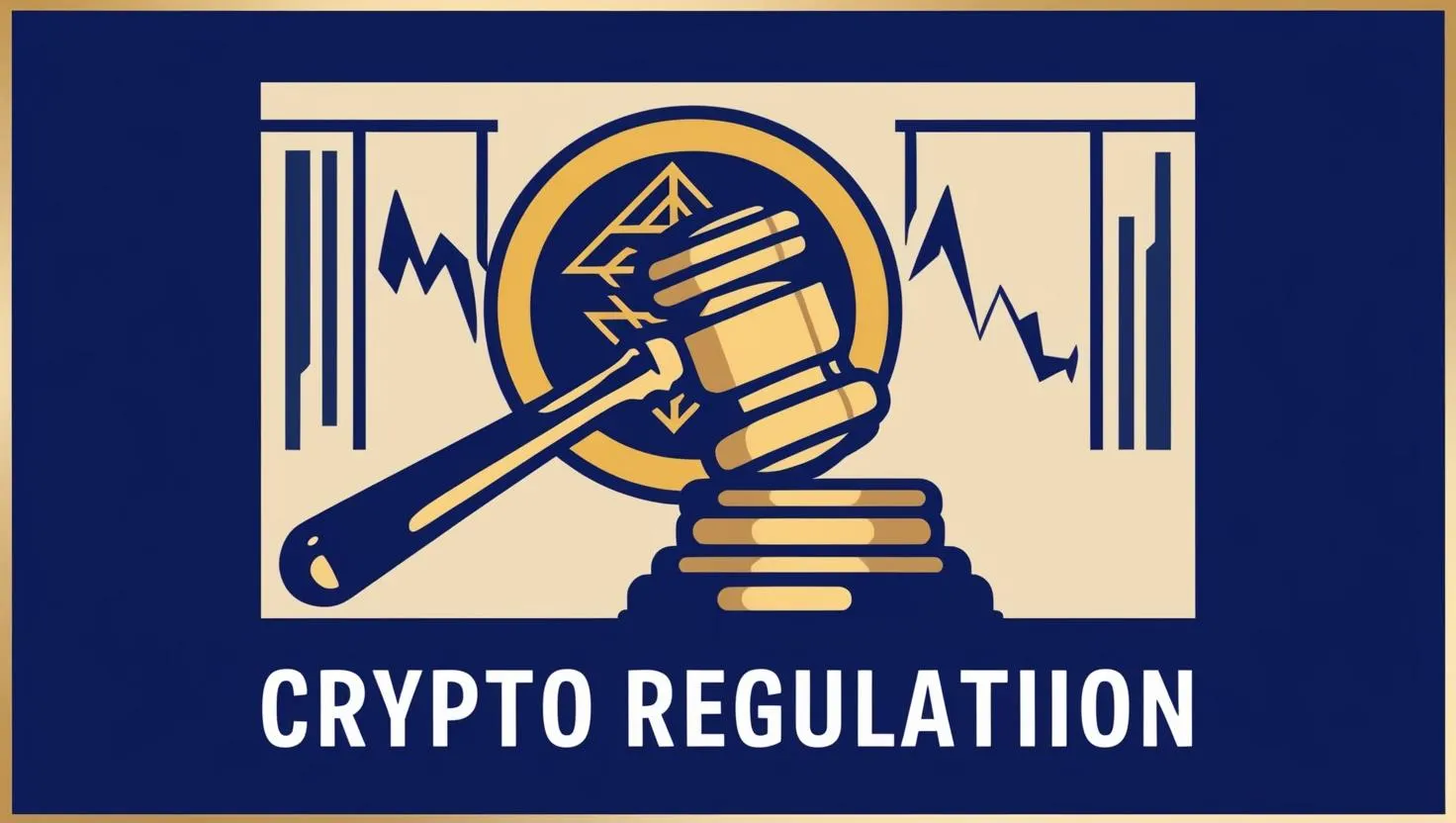How SEC Lawsuits Inadvertently Fueled a Coinbase Monopoly, Harming Individuals and Small Corporations
How SEC Lawsuits Inadvertently Fueled a Coinbase Monopoly, Harming Individual Investors and Small Corporations
April 26, 2025
In recent years, the U.S. Securities and Exchange Commission (SEC) has aggressively pursued enforcement actions against cryptocurrency exchanges, with Coinbase, the largest U.S.-based crypto platform, at the center of its crosshairs.
While the SEC’s lawsuits were intended to protect investors by enforcing securities regulations, they have had an unintended consequence: consolidating market power in Coinbase’s hands, creating a de facto monopoly in the U.S. crypto market. By focusing narrowly on securities law violations rather than broader antitrust concerns under the Sherman Antitrust Act, the SEC’s actions have harmed individual investors and small corporations, stifling competition and innovation in the crypto space.
The SEC’s Legal Crusade Against Crypto
In June 2023, the SEC filed a high-profile lawsuit against Coinbase, alleging the company operated as an unregistered securities exchange, broker, and clearing agency. The complaint also targeted Coinbase’s staking-as-a-service program, claiming it constituted an unregistered securities offering. Similar lawsuits were filed against other major exchanges like Binance and Kraken, accusing them of similar violations. The SEC argued that these platforms’ failures to register deprived investors of critical protections, such as transparency, fraud prevention, and conflict-of-interest safeguards.
While the SEC’s intentions were rooted in investor protection, the lawsuits created significant barriers for smaller crypto exchanges and startups. The legal and compliance costs of defending against SEC actions or retroactively registering as securities exchanges were prohibitive for smaller players, many of whom lacked Coinbase’s financial resources or legal firepower. By February 2025, the SEC had dropped its lawsuit against Coinbase, citing a shift in regulatory priorities under new leadership. However, the damage to the broader crypto ecosystem was already done.
Coinbase’s Path to Dominance
Coinbase, a publicly traded company valued at approximately $65 billion in 2025, emerged from the SEC’s regulatory gauntlet relatively unscathed. Unlike smaller competitors, Coinbase could afford millions in legal fees and had the infrastructure to pivot toward compliance if needed. The dismissal of the SEC lawsuit was hailed as a victory for Coinbase, with its stock surging over 3.5% and analysts noting the removal of a “significant overhang” that had deterred some investors.
Meanwhile, smaller exchanges and crypto startups faced existential threats. Many were forced to shut down, scale back operations, or move offshore to avoid U.S. regulatory scrutiny. For example, several smaller platforms, unable to bear the costs of SEC compliance or litigation, ceased U.S. operations entirely, leaving Coinbase as one of the few viable options for American crypto traders. This consolidation reduced consumer choice and concentrated market power in Coinbase’s hands, creating a monopoly-like grip on the U.S. crypto market.
The Sherman Act Oversight
The SEC’s focus on securities law violations overlooked critical antitrust issues that could have been addressed under the Sherman Antitrust Act of 1890, which prohibits monopolistic practices and restraints on trade. Section 2 of the Sherman Act specifically targets entities that “monopolize any part of the trade or commerce” through exclusionary or anticompetitive conduct. By failing to consider how its enforcement actions disproportionately impacted smaller players, the SEC inadvertently enabled Coinbase to dominate the market without engaging in the kind of “competition on the merits” that the Sherman Act seeks to protect.
Had the SEC or the Department of Justice (DOJ) applied a Sherman Act lens, they might have scrutinized whether the regulatory environment created barriers to entry that favored large incumbents like Coinbase. For instance, the high costs of compliance with securities regulations—coupled with the uncertainty of SEC enforcement—deterred new entrants and stifled innovation.
A Sherman Act investigation could have explored whether Coinbase benefited from this regulatory moat, consolidating its market power at the expense of smaller competitors.
Harm to Individual Investors
Individual investors, whom the SEC aimed to protect, have borne the brunt of this market consolidation. With fewer exchanges to choose from, investors face higher fees and reduced access to diverse crypto assets. Smaller platforms often offered lower transaction fees or niche tokens that catered to retail investors, but their exit from the U.S. market has left Coinbase as the dominant player, with the power to set prices and control listings. This lack of competition has also limited investors’ ability to diversify their portfolios, as Coinbase’s token offerings are curated to align with its business interests and regulatory constraints.
Moreover, the SEC’s lawsuits created a climate of uncertainty that spooked retail investors. Many fled the crypto market altogether, fearing regulatory crackdowns or platform failures, which depressed trading volumes and liquidity. Those who remained were funneled toward Coinbase, where they faced higher costs and fewer options compared to a more competitive market.
Small Corporations Stifled
Small corporations, particularly crypto startups and blockchain-based businesses, have also suffered. The SEC’s enforcement actions raised the cost of operating in the U.S., forcing many early-stage companies to relocate to crypto-friendly jurisdictions like Singapore or Switzerland. This brain drain has weakened the U.S.’s position as a hub for blockchain innovation, ceding ground to international competitors.
Additionally, small corporations that relied on smaller exchanges to list their tokens or raise capital through initial coin offerings (ICOs) found themselves cut off from the U.S. market. Coinbase’s dominance meant that only well-established or SEC-compliant tokens could secure listings, sidelining innovative projects from smaller firms. This dynamic has concentrated economic power in the hands of a few large players, undermining the decentralized ethos of the crypto industry.
A Missed Opportunity for Balanced Regulation
The SEC’s narrow focus on securities law, rather than a broader consideration of antitrust principles, represents a missed opportunity to foster a competitive and innovative crypto market. A more balanced approach could have involved clearer regulatory guidelines that lowered compliance costs for smaller players, coupled with antitrust scrutiny to prevent market concentration. For example, the SEC could have worked with Congress to pass crypto-specific legislation, as Coinbase itself advocated, to provide long-term clarity without disproportionately burdening smaller firms.
Instead, the SEC’s enforcement-driven strategy under former Chair Gary Gensler—described by critics as a “war on crypto”—created a regulatory environment that favored deep-pocketed incumbents. The agency’s recent pivot, including the formation of a Crypto Task Force in January 2025 to develop a comprehensive regulatory framework, suggests a recognition of past missteps. However, the market consolidation that occurred in the interim may be difficult to reverse.
Looking Ahead
The SEC’s lawsuits against Coinbase and other crypto exchanges have reshaped the U.S. crypto landscape, but not in the way regulators intended. By failing to address antitrust concerns under the Sherman Act, the SEC inadvertently handed Coinbase a near-monopoly, harming individual investors and small corporations in the process. As the Trump administration signals a friendlier stance toward crypto, policymakers must prioritize competition and innovation to prevent further market concentration.
To restore balance, regulators could encourage new entrants through streamlined compliance pathways, incentivize smaller exchanges to re-enter the U.S. market, and apply antitrust scrutiny to dominant players like Coinbase. Only by fostering a competitive ecosystem can the U.S. reclaim its role as a global leader in crypto innovation—while ensuring that individual investors and small businesses aren’t left behind.
Disclaimer: This is a hypothetical article based on the prompt provided. It draws on available information about SEC lawsuits and market dynamics but includes speculative analysis for illustrative purposes.































































































